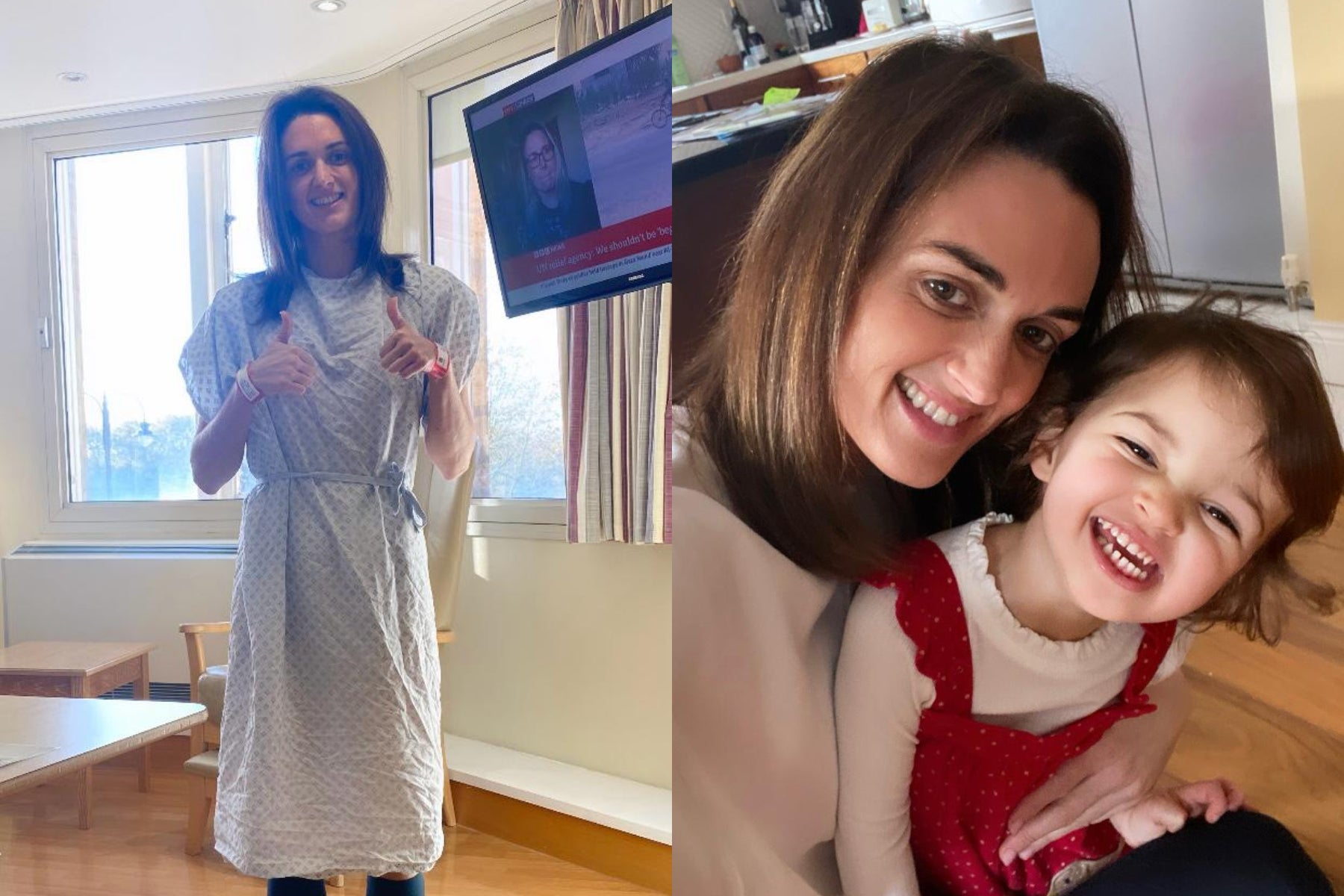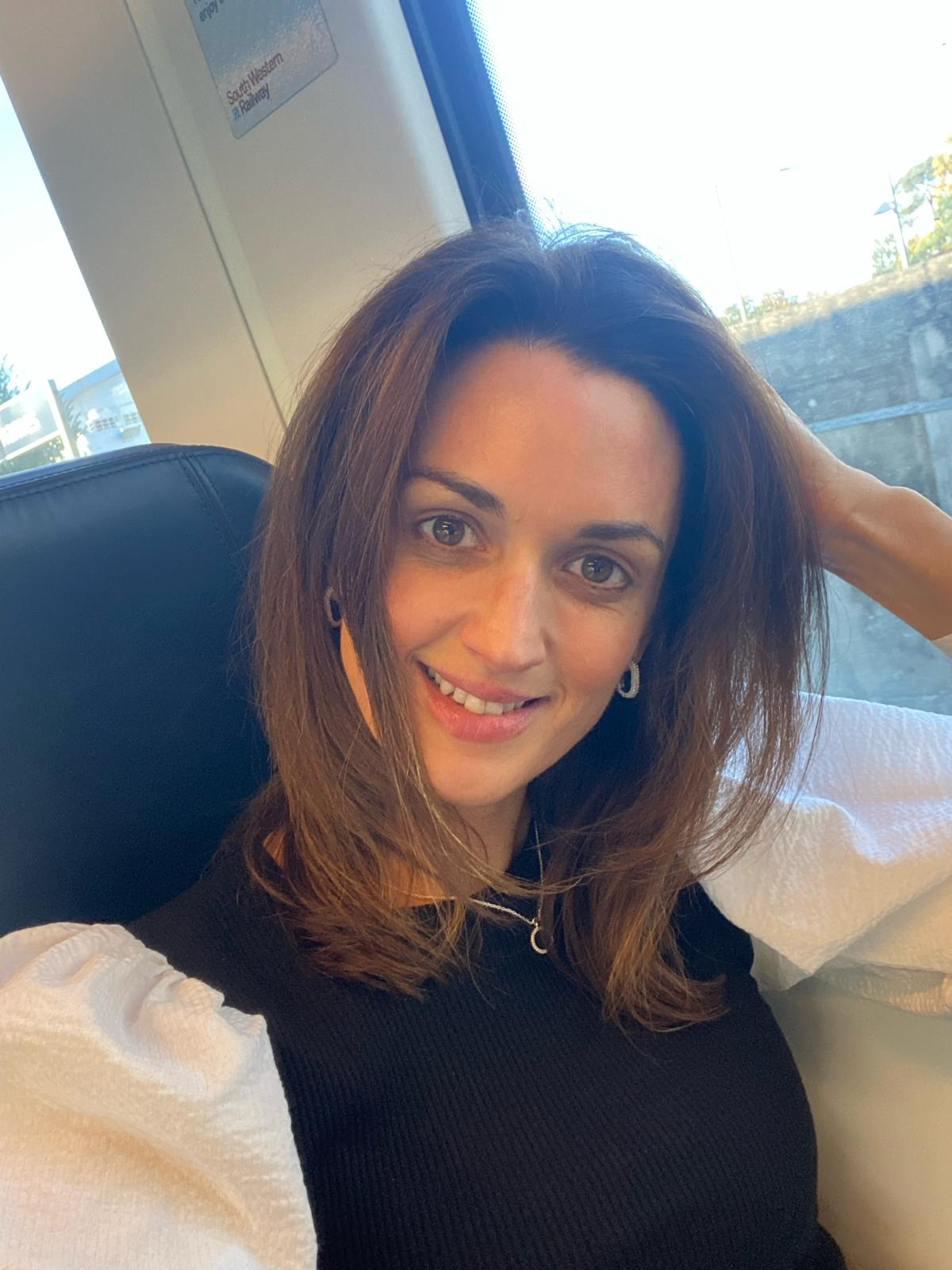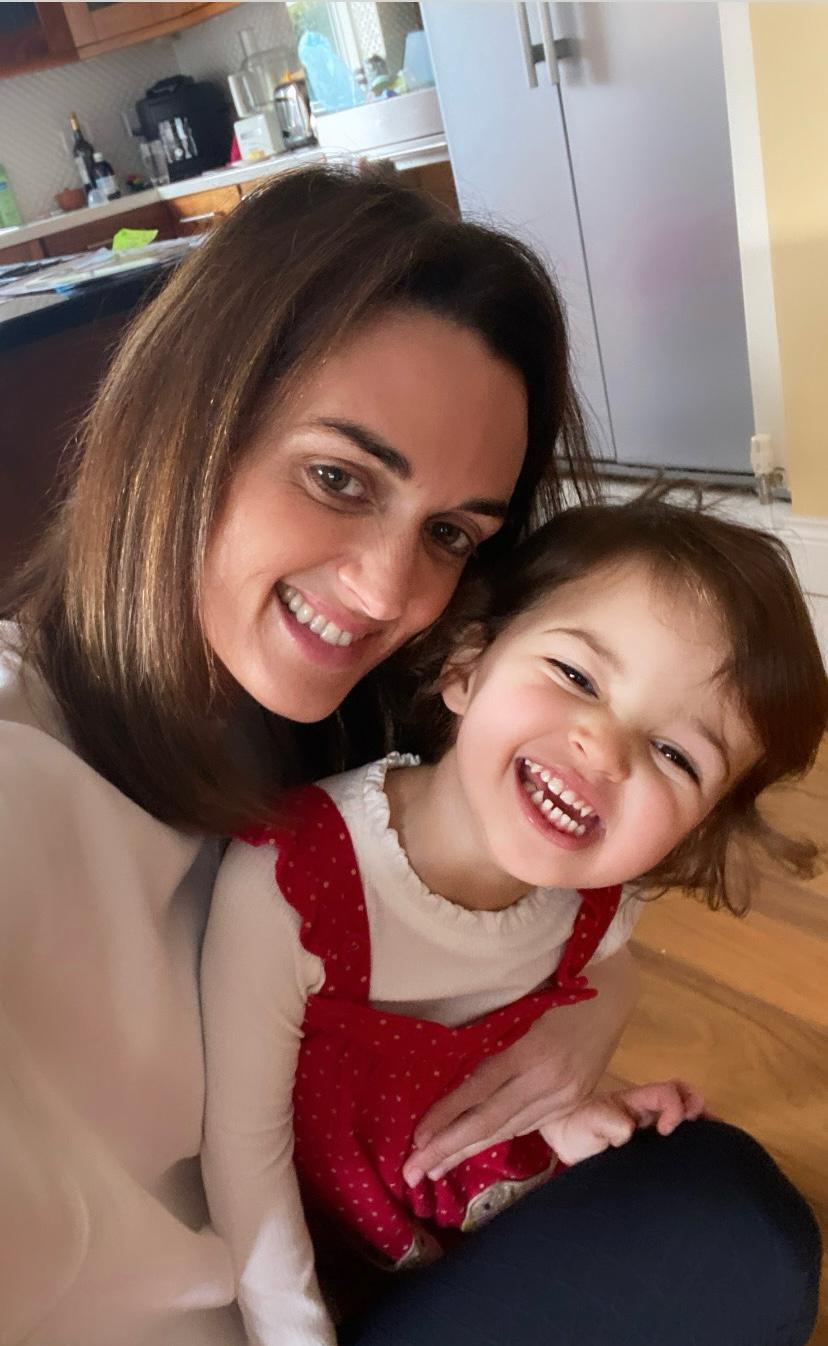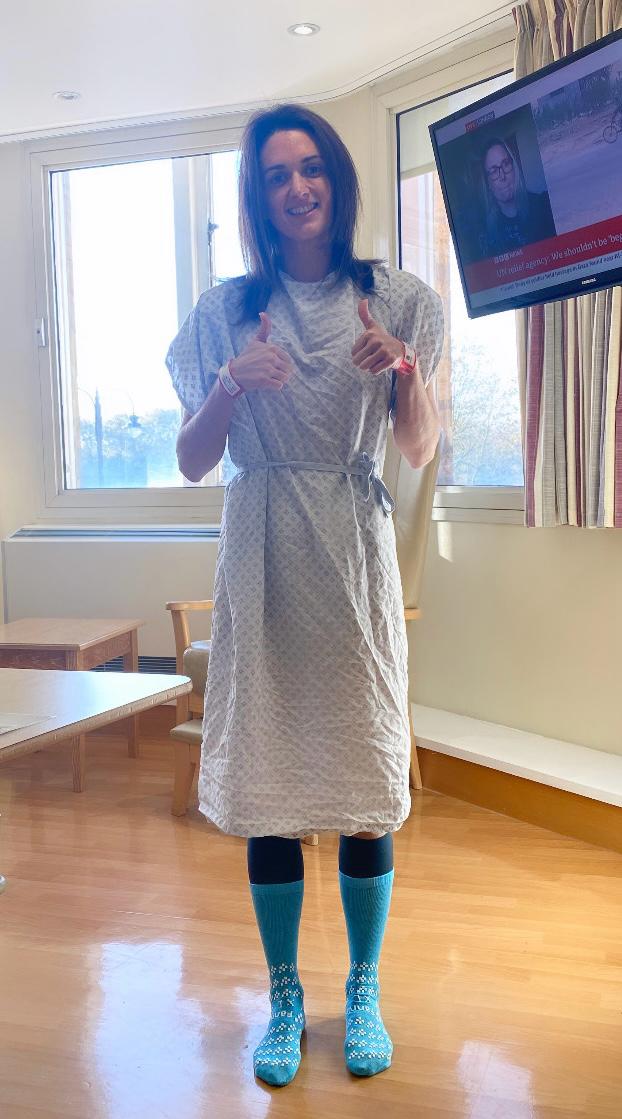Mum finally diagnosed after seeing 20 doctors in 18 years about pain after sex and heavy periods
At age 18, Dearbhail was diagnosed with polycystic ovary syndrome and fibromyalgia because of her fatigue, but still felt like something was not right

A mum of one who grew up experiencing extreme fatigue, excruciating periods and pain after sex was finally diagnosed with endometriosis at age 34 after seeing around 20 doctors in the space of 18 years, and has miraculously given birth to a baby girl and founded a company to help other endometriosis sufferers.
Dearbhail Ormond, 42, founder and CEO of Frendo, began experiencing extremely painful periods from age 16, and after seeking advice from a range of medical professionals she received no answers.
Dearbhail, who lives in Surrey with her partner and their three-year-old daughter Aurelie, began to question whether her symptoms were real, and started to isolate herself and lose self-esteem.
At age 18, she was diagnosed with polycystic ovary syndrome and fibromyalgia because of her fatigue, but still felt like something was not right – her periods continued to be extremely heavy and painful.
After finishing university one year early because of her health, she moved to Australia and started experiencing pain after sex, sometimes fainting afterwards, so decided to seek out medical support – at age 34, she was finally diagnosed with endometriosis and was “elated”.

Since then, Dearbhail has founded a company helping other women with endometriosis and given birth to a baby girl despite doctors telling her she would not be able to conceive because of her endometriosis.
In November 2023, she decided to have a hysterectomy to ease her symptoms, and is now able to better manage her pain and remove her adenomyosis – a condition that causes endometrial tissue in the lining of the uterus to grow into the muscular wall of the uterus.
Dearbhail told PA Real Life: “I remember the overwhelming feeling was, ‘Is this actually real? Or is it just me being lazy? Or, am I making this up in my head? Or, am I depressed?’
“I would particularly socially pull back from things because I just felt so uncomfortable in my own body, – physically, I’d go a size or two sizes up from bloating.
“If you’re being taken to doctors, and you’re saying, ‘Look, this is how I feel’, and they say, ‘Well, your tests come back clear, you’re all fine’, it really plays with your own self-esteem.
“I’d say I isolated myself, because I just didn’t know what was going on and I felt absolutely rubbish.”

Dearbhail began feeling like something was not quite right when she was 16 – she began having “excruciating abdominal pains and pelvic pains” and extreme fatigue.
From that point onwards, Dearbhail began seeing a range of medical professionals varying from gastroenterologists to immunologists and gynaecologists – but no-one could give her a concrete answer on what was causing her symptoms, or how to relieve them.
At age 18, Dearbhail was diagnosed with PCOS and fibromyalgia because of her fatigue, bloating and period pain.
But the painkillers she was prescribed as a result did not help ease her symptoms.
When she started university in 2000, studying Marketing at Technological University Dublin, her periods were incredibly heavy and painful to the point where she was “literally haemorrhaging for weeks”.
“I would say it affected my studies overall… I think by the time I got to university, I kept losing momentum in everything,” she said.
“I’d say I felt a little bit detached from things back then.
“I think there’s a little bit of trauma in dealing with all of this stuff and not having answers.”
Because of this, she finished her course one year early and did not graduate – instead, she moved to Australia where she would later complete her degree and work.
Throughout this period, her symptoms still failed to improve.
“On a couple of occasions, I was collapsing and collapsing quite badly – one time, I cracked my chin open and broke my sternum, and that was after sex,” she explained.
This experience urged Dearbhail to seek medical help again, and a friend introduced her to a surgeon at age 34, who found a 32 centimetre piece of tissue in her ovaries, which later turned out to be endometriosis.
“I was absolutely elated and I’d say it changed me that day because I spent so much of my young adulthood questioning,” she said.
“Being told that they actually found something which is pretty serious, no-one wants to hear that, but I finally felt validated.
“I realised I can manage it and can actually address this.”

Her long search for a diagnosis motivated Dearbhail to help other women and raise awareness about endometriosis.
She began creating Frendo, a community, social network, health tracker and insight tool for people with endometriosis and those who suspect they have it.
“I think what is definitely the most valuable thing is the tracker – it’s very specific to endo, and it means patients can actually articulate their symptoms a lot easier when they’re going to a GP, so there is less chance of being dismissed,” she explained.
“It feels amazing to be helping other women going through a similar thing.”
Over the years, she was also told by doctors that she would not be able to conceive due to endometriosis, which Dearbhail found “heartbreaking” and as if doctors were being “flippant”.
Despite this, in March 2021, at age 39, she gave birth to her daughter, and decided to launch the app on the same day.
She said: “I didn’t believe it – I think I did about five or six pregnancy tests of my own while I was waiting for the doctor’s one to come back.
“I’d love to turn around and say it was just joyful and great but I had some health anxiety and I think sadly, up until a point of the pregnancy, I really didn’t feel like it was going to happen.
“I think I was in disbelief until she was born and she was safe.
“It was just such a huge relief when she was born and it was against all odds.”
Around six weeks after giving birth, while at home looking after her daughter, Dearbhail collapsed due to an endometriosis “flare up” – she soon decided that she could not carry on this way, and decided to have a hysterectomy in November 2023.
“I was sick about 70% of the time, was in excruciating pain and bleeding really heavily,” she said.
“I had tried absolutely everything else so decided to go ahead with the procedure… it was one of the hardest things I’ve done and was emotionally challenging, but my symptoms have been a lot better.
“I don’t bleed, I’m not vomiting half as much and the pain is more manageable.”

To those with endometriosis, or who think they may have it, Dearbhail would say: “Believe yourself if you think that something doesn’t feel right.
“If you’re not getting that support, and trust from a GP or someone close to you, just keep searching for someone else, find just someone, whether it’s a nurse, whether it’s a therapist, and make sure to absolutely diarise how you are feeling.”
For more information, visit: frendo.co.uk/frendoatwork and instagram.com/frendo_app.
Join our commenting forum
Join thought-provoking conversations, follow other Independent readers and see their replies
Comments
Bookmark popover
Removed from bookmarks